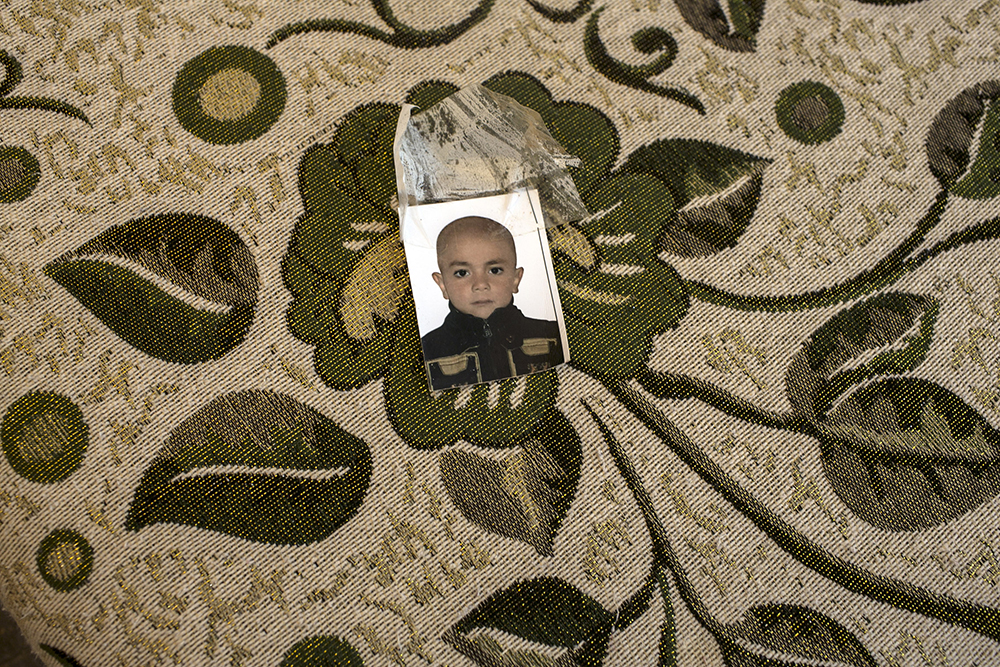Malik, 4, spent a year and a half of his life under siege in Ghouta, on the outskirts of Damascus. In the early hours of 21 August 2013, rockets containing the chemical agent sarin struck two opposition-controlled areas in Ghouta. The attack was the deadliest use of chemical weapons since the Iran–Iraq War.
Having already survived an extended period of near extreme hunger because of the siege, this attack left his stomach bloated, and doctors found cancerous tumors in his kidneys. Malik’s left kidney was removed, and he started undergoing chemotherapy in Syria. But fearing that he would die without better treatment, his mother fled to Zaatari refugee camp. With financial support from UNHCR, Malik completed chemotherapy and is now awaiting tests to determine whether the treatment was a success. His hair and energy are both returning.
Malik’s mother shields him from the death of his father, who is spoken about as an abstract concept. When she was shown the corpse of her husband, she refused to receive it or acknowledge it was him. Malik’s mother can only focus on her son and little else. She keeps this picture to show what he looked like when his face started to fill out. Today, Malik has a mop of curly blonde hair and plays outside.
